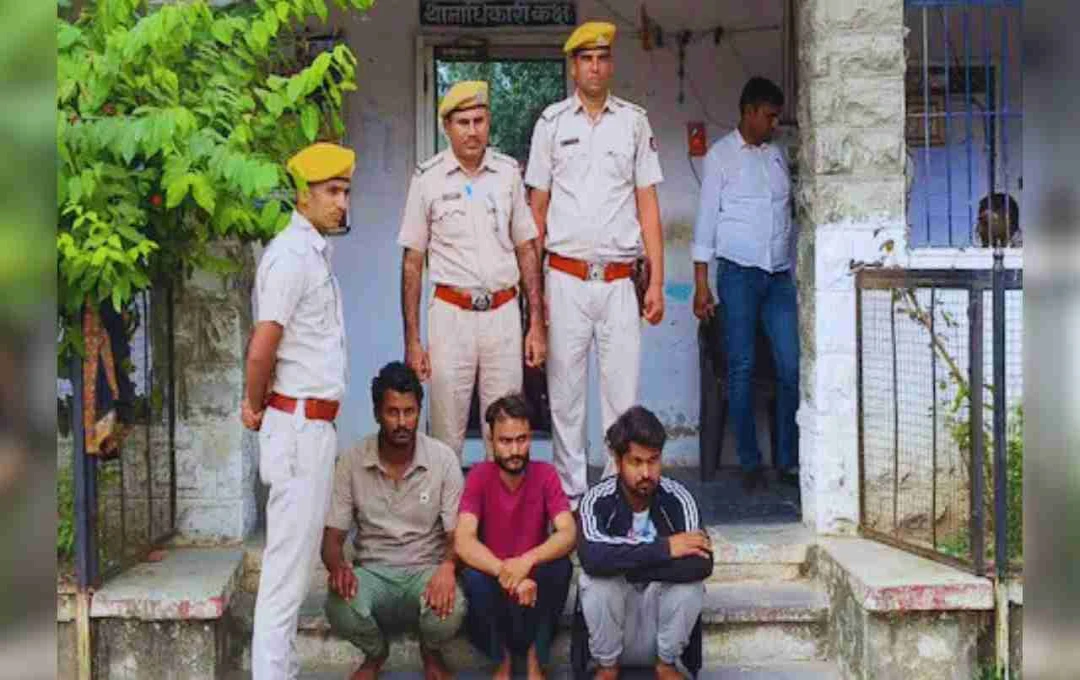In Chittorgarh, Rajasthan, three youths printed counterfeit notes in a rented room with the help of ChatGPT. They targeted small shopkeepers by making fake 500-rupee notes using a printer and special paper. Police arrested the gang.
Chittorgarh: Police in Chittorgarh district of Rajasthan have busted a gang that was using digital tools and ChatGPT to produce counterfeit currency. The accused had ordered printers, special paper, and watermark-making equipment online, turning a rented room into a 'mini fake currency factory'. During interrogation, the accused confessed that they learned how to make notes with the help of ChatGPT.
Arrest of Fake Note Accused in Vijaypur
Vijaypur Station House Officer (SHO) Prabhusingh Chundawat stated that on September 17, Asif Ali (27), Adil Khan (27), and Shahnawaz Khan (27) were apprehended from the Kotwali police station area while circulating counterfeit 500-rupee notes. Approximately 15,000 rupees in fake currency were recovered from the accused, many of which had already been circulated in the market.
Police seized 13 notes from mastermind Asif Ali, 6 from Adil Khan, and 11 from Shahnawaz Khan. All the notes belonged to the same series to make it difficult to distinguish between genuine and fake currency. The police have described this success as a significant step.
Fake Factory Hidden in a Rented Room

Investigations revealed that the three accused had rented a room in Sarola village, Jhalawar, and told the landlord they worked on online computer tasks. A printer, special type of paper, watermark frame, chemicals, and green tape were recovered from the room.
According to the police, all the equipment and materials were ordered online by the accused. The room was fully prepared for the process of printing counterfeit notes. By printing notes in this 'mini factory', the gang had planned to circulate fake currency for several months.
Small Shopkeepers Became Targets
During interrogation, the accused confessed that they circulated fake notes in Pawta Chowk and the surrounding areas. Their main targets were less-educated shopkeepers, vegetable vendors, and street hawkers.
They would buy small items with the fake 500-rupee notes and receive genuine change. They avoided circulating notes in familiar areas and rode bikes with fake number plates to evade capture. This cunning strategy allowed their scheme to succeed for several months.
Police Took Strict Action
Police officials stated that this is the first case where the accused learned to make counterfeit notes using digital tools. All three accused have been produced in court and taken into remand. Investigations are now also underway into the gang's network and connections in other states.
Local administration and police have appealed to the public to always check the series and security features of 500-rupee notes when accepting them. The police also warned that any suspicious activity should be immediately reported to the nearest police station or helpline.














